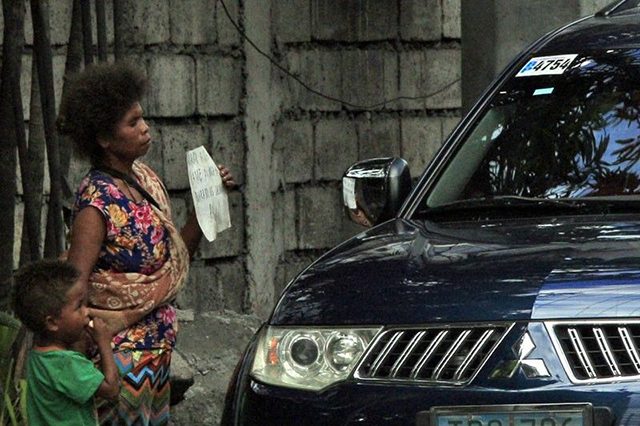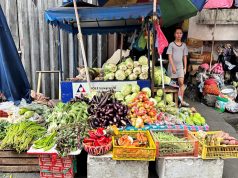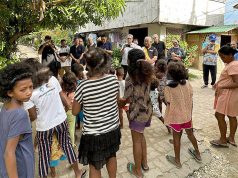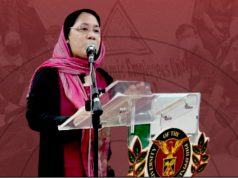
To avoid giving alms to beggars this holiday season has been a constant reminder of the Department of Social Welfare and Development to the public for years.
Many of these are members of the Badjao and Aeta ethnic groups, DSWD said, whose numbers proliferate in Metro Manila during this time of the year.
Glenda Relova, spokesperson and assistant secretary in the agency, told the people on Wednesday not to give alms to the children and families on the streets.
“We appeal to our kababayans especially here in Metro Manila not to give alms to children and families on the streets, as this will perpetuate their beliefs that it is okay to ask for alms and that it is a good way to earn,” Relova said.
Relova said that DSWD personnel observed that there’s an increase in the number of Badjaos and Aetas on the streets during the Christmas season.
“Starting October, we usually see our fellow citizens who are Aetas and Sama-Bajaus go to Metro Manila to ask for alms, as it is a means of livelihood for them. If quick cash won’t be accessible to them, they will not pursue this practice anymore,” she said.
Although the agency had been giving this reminder for years, it still gathered mixed reactions from Filipinos online.
One Facebook user observed that Aeta’s journey to Manila only every Christmas, then return to their homes after.
Meanwhile, another Facebook user shared that Badjao’s perceived begging on the streets as a form of livelihood.
Relova noted that her colleagues perceived that providing these people money even during this season of giving does not serve their best interests.
“We understand that during Christmas season, people give extra love and care. They are more generous as this is the season of giving. But let us not give alms. We believe it is not the best solution,” she said.
Badjaos and Aetas during holidays
The influx of members of IP communities going to the busiest parts of Metro Manila is now a yearly phenomenon.
Many of them are women who take their young children along to plead for food or money. You may encounter them tapping on cars’ windows in the middle of the road, hopping inside jeepneys to hand out envelopes and tugging on people’s clothing to ask for money.
Social workers believe they organize themselves by September by renting a jeepney to make the trip to Manila.
“By September they begin to look for jeepneys they will rent. They put up signs saying it’s an ‘excursion’ or an ‘educational trip. We have to see who teaches them to do that. Their printed signboards of ‘Merry Christmas’ are also well made,” said Nonie Metrian, a social worker in the city.
In 2017, residents of Mandurriao district in Iloilo City saw a temporary influx of Badjaos who begged.
In 2014, residents of Baguio City were also witness to a “competition” between members of ethnic tribes in the region and mendicant Badjaos.
The Badjao or Sama Laus people are widely known “sea gypsies” or expert fishermen who live along the coastal areas of Tawi Tawi, Sulu, Basilan and other provinces in the Autonomous Region of Muslim Mindanao.
The Aetas, meanwhile, considered as among the first Filipinos, a marginalized group in the country. Aeta families are mostly scattered in the northern part of Luzon. Underdevelopment of communities and the scarcity of decent jobs drive some of them to a mendicant life.
What DSWD is doing to help them
Relova suggested that Filipinos take part in the agency’s initiatives to help the homeless in Metro Manila through its #HelptheHomelessPh campaign.
Launched last year, the campaign is anchored on making the public aware on the reasons Filipinos live on the streets.
Meanwhile, Relova said that members of indigenous communities frequenting the capital are being assisted through their long-running Balik-Probinsya Program.
Last September, nearly 97 families of Itogon town in Benguet affected by Typhoon Ompong were offered food, funds and transportation as part of the program.









